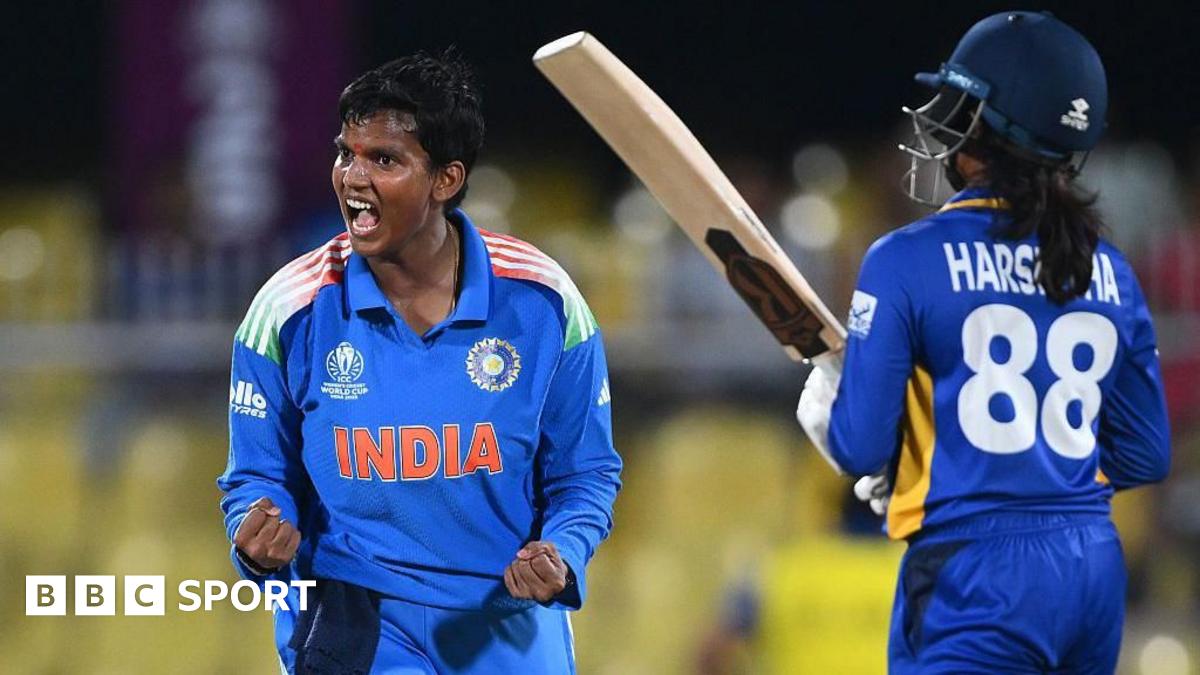From being retired out in IPL to India's hero in Asia Cup final vs Pakistan: How Tilak Varma turned a corner

After a painful 'retired out' incident in the 2025 IPL, Tilak Varma received crucial guidance from his childhood coach, Salam Bayash. This mentorship helped him deliver an unbeaten 69 in the Asia Cup final against Pakistan, leading India to victory and fulfilling his determination to win for the team.Tilak Varma (AFP Photo)NEW DELHI: A balmy April night under the Lucknow lights offered a high-scoring thriller not so long back, with Mumbai Indians chasing 204 against Lucknow Super Giants in the 16th match of the 2025 Indian Premier League (IPL). The equation had boiled down to 24 runs off seven balls with five wickets in hand when, suddenly, Tilak Varma, batting on 25 from 23 deliveries, was asked to walk back. Retired out. The crowd stood stunned.Inside details of how PCB chief Mohsin Naqvi ran away with the Asia Cup trophy!Go Beyond The Boundary with our YouTube channel. SUBSCRIBE NOW!For the southpaw, it was perhaps a tad more than painful, as only three others had suffered that fate in IPL history. Mumbai lost, and captain Hardik Pandya, along with coach Mahela Jayawardene, defended the "retired out" call, mentioning the 22-year-old's struggle to find the big hits. Their explanation, however, did little to ease the young batter’s disappointment. That very night, Tilak, unable to hide his hurt, dialled the man who had discovered him as a precocious 11-year-old, his childhood coach and mentor Salam Bayash. “Jab 'retired out' hua tha, woh mujhe call kiya (When he was retired out, he called me),” Bayash tells TimesofIndia.com. "I told him, 'Look, they might've done it for some game plan. But you don't lose your patience. Play in a way that makes the team management think about you. If someone calls you to tell you something, don’t pick up. Just keep your focus for the next match. Tumhe bat se iska jawab dena hoga (You should give the answer with your bat).' "At that time, he was getting a little too aggressive, and sometimes there were small errors in his game... We talked a bit about the mistakes he was making against spinners and showed him some old videos." Bayash’s relationship with Tilak is no ordinary coach–pupil story. Back in Hyderabad, the electrician’s son first caught Bayash’s eye during a tennis-ball match against older boys. Unable to afford coaching, Tilak was taken under Bayash’s care for free. He would ferry the boy to practice on his cycle, often covering long distances, and alongside rigorous cricket coaching. So, when IPL humiliation left him raw, it was natural that he turned to Bayash. Even a few months back, Tilak was almost a lock in India’s Asia Cup squad, but the situation wasn’t ideal for the batter. He had just returned from a county stint, steeped in red-ball cricket, with Hampshire ahead of a white-ball multi-national tournament. “Before going to the Asia Cup, he had only two days of practice with us,” Bayash says. “He had to shift his focus from red ball to white ball. So, we had a full day of white-ball work. Then he went to NCA and came back. So, we did our white-ball practice for another day. We could practice for only two days.” Once the tournament kicked off, India’s top order, pumped by the flamboyance of eventual Player of the Tournament Abhishek Sharma, led the way for Team India through the group stages, leaving Tilak with little room to steal the spotlight. But in the final Super Four clash against Sri Lanka, a 49-run knock hinted at form. Then came the big stage: the Asia Cup final against Pakistan. Chasing 147, India were in trouble at 10 for 2 when Tilak walked in. What followed was the innings of his young career: an unbeaten 69, guiding India to a five-wicket victory and their ninth title. “I gave him only one target,” Bayash recalls. “Play your game, wait for the right moment in the situation, manage overs if needed, and stay till the end." And he did exactly so. After taking India over the line, Tilak video-called Bayash directly from the ground. “He was overjoyed,” the coach smiles. “He said, 'I am very happy, sir. You had asked me to stay not out and win the match for the country. And I did.' It has always been the case with him. Even earlier, if he scored a hundred, I would never say ‘well played’; I would only say it if he won the match.” The innings, Bayash insists, was larger than a final: “Just look at this inning, no one in the entire country could ever forget it.” The inevitable question now looms: Does this performance secure Tilak Varma’s place in India’s long-term plans? “If his only goal was to cement a spot, he would’ve made sure that 49 against Sri Lanka became 50. But he is different. He wants to win matches for the team. From the time he was 11 or 12, that has been his target,” the coach adds. Interestingly, Tilak had already visualised his moment. As broadcaster Sanjana Ganesan revealed after the final, he had scribbled on a slip of paper before the Asia Cup: "Scoring runs in the final and winning (for) the team." That manifestation found its answer with Tilak's bat under the Dubai lights.End of ArticleFollow Us On Social Media










